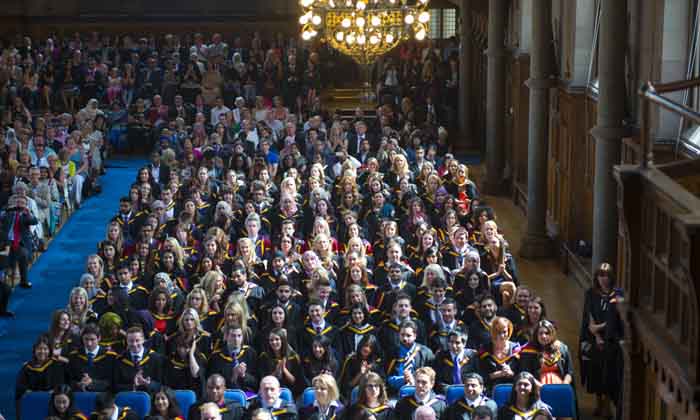Diversity and inclusion at the heart of new student outcomes projects
14 Mar 2017
Funding received for two new schemes to improve outcomes for Black, Asian and minority ethnic students, those from low socio-economic groups and that experience mental ill health

The projects are being funded under the Catalyst Fund established by the Higher Education Funding Council for England (HEFCE).
The first, led by The University of Manchester in collaboration with the University of Manchester Students’ Union has been awarded £768,390. Working with their partner institutions the University of Birmingham and Manchester Metropolitan University, and their Students’ Unions; the project will develop a ‘Diversity and Inclusion Student Ambassador Programme’.
Over two years, partners will focus on issues specifically relevant to their student populations. Overall, the programme will work to improve student experience, attainment and other outcomes such as employability for BAME students and those from low socio-economic groups and students that experience mental ill health.
It will use a collaborative model that brings staff and student together as partners and builds on the Black Student Ambassador Programme at the University of Birmingham and the Diversity and Wellbeing Student Ambassador Programme piloted in the Manchester Pharmacy School. Led by Dr Sally Freeman and Professor Kaye Williams, this programme aimed to safely challenge negative stereotypes, increase students’ sense of belonging, and support engagement with wellbeing.
In the new programme, Student Ambassadors will be supported to undertake activities to facilitate inclusive learning environments, enhance student experiences, and engage with wellbeing activities.
Students will be empowered to tackle the negative effects of stereotyping and micro-aggressions and safely challenge racism, harassment and other forms of discrimination on campus through the development of an evidence-based intervention that will encourage them to become active bystanders to events, with training provided to help them chose the best course of action.
The University of Manchester has more than 10,000 international students and is ranked top in the English Russell Group of elite universities for the percentage of students from low participation neighbourhoods, state schools and colleges, and people receiving disabled students’ allowance.
The project has two principal investigators, Drs Dawn Edge and Hema Radhakrishnan and co-investigator Cath Prescott from the Equality, Diversity and Inclusion Team. Dr Edge said: “Manchester has a diverse campus and that is one of our strengths. However, research carried out across England in 2015 identified that there are issues in relation to diversity and attainment that universities need to address.
“This project will help us examine what we do here at Manchester and to develop new resources and means of supporting our students to maximise their potential. We very much hope that we’ll learn lessons which can be applied more broadly across the sector.”
llyas Nagdee, the UMSU Diversity Officer, said: “We are very excited to be collaborating with the University on this project. We hope that bringing students and staff together using this innovative co-production method will help tackle negative stereotypes and create inclusive learning environments and make a real difference to outcomes for all BAME students and students from low socio-economic backgrounds.”
The other HEFCE funded project at Manchester is led by the University of Leeds and has been awarded £500,000. The project will focus on undergraduate and postgraduate students from areas of low participation in Higher Education and BAME backgrounds, to close the gap in student outcomes by helping them progress to, and succeed in, postgraduate study.
Building on research in this area, the project will help the transition of students into postgraduate taught study through online academic skills, support and targeted information, advice and guidance. The other participating institutions are Newcastle University, The University of Sheffield, The University of Warwick and The University of York.
Stephanie Lee, The University of Manchester’s Head of Widening Participation and Outreach said: “Widening access to postgraduate study is still a relatively new area of work and it’s great that the University is part of a project which, as well as supporting students, will help grow our understanding of the barriers students from widening participation backgrounds face in accessing further study.”
